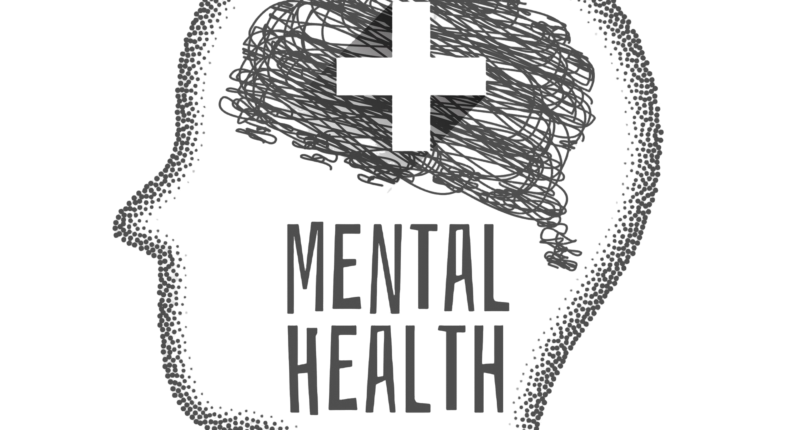Mental illness affects millions of people globally, yet it is often misunderstood or overlooked. Recognizing the signs of mental illness is vital for timely intervention and treatment. Mental health conditions, such as anxiety disorders, depression, bipolar disorder, and schizophrenia, can be life-altering if left untreated. By understanding these signs, individuals and families can better support those affected and ensure they receive the care they need.
Common Warning Signs of Mental Illness
1. Changes in Mood or Behavior
Sudden or drastic changes in mood or behaviour are often the first signs of mental illness. Individuals may experience extreme sadness, irritability, or elevated moods that are not in line with their usual behaviour. This is particularly common in conditions like bipolar disorder, where mood swings between manic and depressive episodes. If someone exhibits persistent mood changes over weeks or months, it may indicate an underlying mental health issue.
2. Social Withdrawal
Withdrawing from social activities is a typical sign of mental illness, especially in those with depression or anxiety. The person may avoid friends and family, cancel plans, or isolate themselves, feeling too overwhelmed to engage in social interactions. This behaviour can worsen feelings of loneliness and may signal a deeper mental health concern.
3. Difficulty Concentrating
Many mental health conditions, such as depression and anxiety, can lead to difficulty concentrating or staying focused. Racing thoughts, fatigue, or heightened stress levels may cause individuals to struggle with completing tasks, following conversations, or remembering important details. If cognitive struggles persist, they may indicate a mental health issue affecting work or personal life.

4. Disrupted Sleep Patterns
Changes in sleeping habits are a red flag for mental health problems. Conditions like depression and anxiety are frequently accompanied by insomnia or excessive sleep. Disrupted sleep patterns not only affect physical well-being but can also worsen emotional distress, creating a negative feedback loop that deepens the mental health crisis.
5. Physical Symptoms Without a Clear Cause
Mental illnesses often present physical symptoms, such as headaches, stomachaches, or chronic pain. Anxiety, depression, and stress can manifest through these physical symptoms, often without any clear medical cause. These signs are sometimes overlooked but can provide valuable clues to an individual’s emotional state.
6. Overwhelming Feelings of Guilt or Worthlessness
Extreme feelings of guilt or worthlessness are common in individuals experiencing depression. These emotions can be overwhelming and lead to a cycle of negative thinking that may result in self-harm or suicidal thoughts. People with these feelings should seek professional help, as these are serious indicators of mental distress.
7. Substance Abuse as a Coping Mechanism
In some cases, individuals with mental health challenges may turn to substance abuse to cope with their emotions. This is especially common among those with untreated mental illnesses like depression, anxiety, or PTSD. While drugs and alcohol might seem to provide temporary relief, they can exacerbate the underlying mental health condition and lead to addiction.
8. Appetite or Weight Changes
Sudden changes in appetite or weight are also indicative of mental health issues. Depression and anxiety can cause individuals to overeat or lose interest in food entirely. Eating disorders like anorexia or bulimia are closely tied to mental health and require immediate intervention. Rapid weight changes can signify emotional or psychological turmoil.
9. Suicidal Thoughts or Self-Harm
One of the most concerning signs of mental illness is suicidal ideation or thoughts of self-harm. Individuals experiencing overwhelming feelings of despair or hopelessness may see no other way out. It’s crucial to treat these signs seriously and seek professional help immediately if someone expresses a desire to harm themselves or frequently talks about death.
When to Seek Help
Recognizing the early warning signs of mental illness can help prevent symptoms from worsening and lead to more effective treatment outcomes. If you or someone you know is showing any of these signs, it’s essential to consult a mental health professional as soon as possible. Therapy, medication, and support groups can help individuals manage their symptoms and improve their quality of life.
How to Support Someone With Mental Illness
Supporting someone with mental illness requires patience, understanding, and compassion. Here are some ways you can help:
- Encourage professional help: Offer to assist them in finding a therapist or setting up an appointment.
- Be patient and listen: Give them space to talk without judgment, offering support and understanding.
- Educate yourself: Learning about their condition can help you provide better support.
- Avoid minimizing their experience: Phrases like “snap out of it” or “it’s all in your head” can be harmful. Acknowledge their feelings and show empathy.
Conclusion
Mental illness is a complex and varied condition, but early recognition of the signs can lead to better outcomes. If you notice changes in mood, behaviour, or physical health that last for an extended period, seeking professional help is essential. Mental health conditions are treatable, and with the right intervention, recovery is possible.









